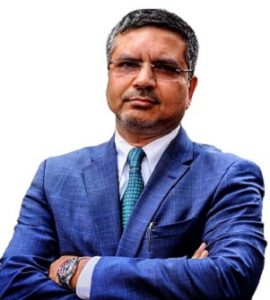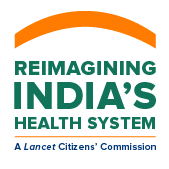In Conversation:- Ajay Bakshi, Neurosurgeon, Neuroscientist, McKinsey consultant and ex-CEO of Max Healthcare, Manipal Hospitals and India Operations of IHH/Parkway Hospitals
Apr 14, 2022

I have spent nearly 4 decades in healthcare as a neurosurgeon, a scientist, strategy consultant, CEO of hospital networks and most recently as a HealthTech entrepreneur. Throughout this journey – I have been thinking about and working on how technology might be used to improve healthcare experiences and outcomes at population scale. We published one of the first white papers on mHealth in collaboration with GSMA back in 2010 (https://en.wikipedia.org/wiki/MHealth#cite_note-10). Over the last few years – I have been building technologies to bring advanced AI to the fingertips of doctors and patients in collaboration with my colleagues at NeuranceAI.
As a volunteer at iSPIRT I have been fortunate to participate in the shaping of HealthStack – which is a complete re-imagination of how India’s national health system can be designed to empower citizens to use their data for better healthcare. With the roll out of ABDM and general post-covid consensus that Indian health systems need to be strengthened using technology – we may have a window of opportunity to accelerate the adoption of solutions that can improve healthcare dramatically.
Healthcare is a complex topic that deals with critical elements of citizens’ lives – and great care has to be taken to ensure that citizens’ interests are served first. Alignment of incentives amongst different stakeholders and ensuring that solutions can scale across a diverse spectrum of socio-economic and technological status of the users.
The Lancet’s Commission is taking a multi-disciplinary approach to reimagine healthcare for India and I hope that the recommendations coming out from this important piece of research inspire policymakers, healthcare stakeholders and citizens to participate in building a newer and stronger health system for India.
